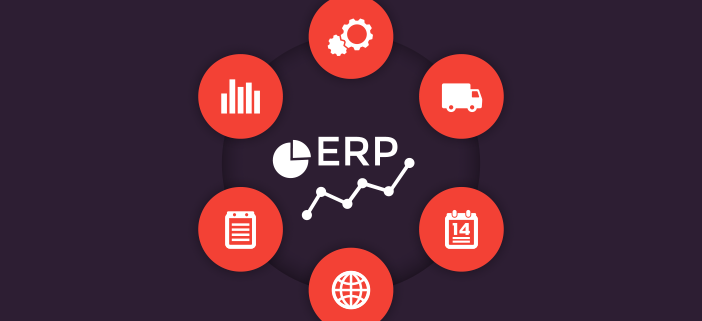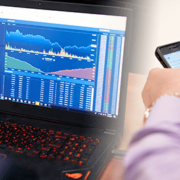The 6 basic components of a modern ERP
Enterprise resource planning (ERP) software can be a significant benefit to your business. Most systems have a large selection of features and functionality. ERP software has the ability to help you manage finances, customers, projects, service, commerce, and more. With an ERP system, you’ll have the ability to adapt and change, improve processes, reduce errors, and track and manage assets.
ERP’s are fast becoming a sought after platform for businesses, with the market expected to hit $47 billion in revenue by 2022. However, there are certain key components your ERP software should have for it to be effective in your organization. Let’s look at the six basic components of a modern ERP.
When selecting and implementing an ERP, there are many considerations. Those considerations will be influenced by the major components that every system should have. When you have functionality that aligns with your business goals, you are more likely to see results. In fact, 95% of businesses that implemented an ERP saw an improvement in their processes. Another study found that the top three benefits of ERP usage were reduced process time, increased collaboration, and centralization of enterprise-wide data.
Top components your ERP needs
Human resources
Managing employees is critical to your success so your ERP system should do this job well, handling the entire spectrum of employee administration. This includes onboarding, offboarding, benefits, and time tracking.
The most important feature you need within the HR capabilities is payroll software. You don’t want your HR staff doing this manually as it’s time-consuming and can lead to human error. An HR component can automate payments in addition to tax and benefit deductions. With an integrated time tracking system, hourly employees can be paid automatically, with no need to manually input timesheet information.
Customer relationship management
Another high priority for any business is managing customers and leads. Every company needs a highly functional customer relationship management (CRM) platform as part of its ERP. The insights you’ll gain from a central hub will enable you to sell and market better to your target audiences.
Use a CRM to track buying behaviors, conversation histories, or interactions to determine how to best communicate with customers and leads to generate more revenue.
Business intelligence
When using a cloud ERP, you’ll want to make sure it has business intelligence functionality. This component can collect and analyze data, providing your team with actionable insights. Look for a system that provides reports on valuable business intelligence insights so you can have a clear view as to what actions to take.
Supply chain management
Having an efficient supply chain is imperative, and with the right ERP system, it can be easier to accomplish this. With powerful features, you can optimize your supply chain and collect data in real-time. This allows you to respond immediately when there is a problem.
Inventory management system
Inventory management goes hand-in-hand with the supply chain management piece. It will also help you manage other processes like fulfillment and stocking. You’ll want to find a system that enables this tracking to be automated, reducing manual practices.
Financial management
All the other data from your ERP feeds into financial management, as basically, every business process involves money. You can have a clear view of all your financial data and see spending trends that could help you reduce costs.
Choosing the right ERP system can be tricky. There are lots of options. We can help. We offer an ERP system that has all these components and more. Contact us today to learn more.












